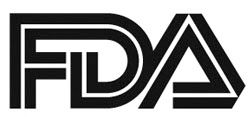FDA Clears IND for Novel Immunotherapy in Solid Tumors
The FDA has provided clearance to an Investigational New Drug application for GT103 for the treatment of solid tumors. A phase I clinical trial will be initiated to evaluate this novel targeted immunotherapy in patients with refractory non–small cell lung cancer, announced Grid Therapeutics, LLC.

The FDA has provided clearance to an Investigational New Drug (IND) application for GT103 for the treatment of solid tumors. A phase I clinical trial will be initiated to evaluate this novel targeted immunotherapy in patients with refractory nonsmall cell lung cancer (NSCLC), announced Grid Therapeutics, LLC.1
“We believe GT103 has the potential to improve clinical responses in lung cancer patients, including those who are refractory to currently approved immunotherapies. As the only company developing human-derived antibodies from single B cells against novel targets, we hold a differentiated and important position in the immuno-oncology space,” said Dr. Edward Patz, Jr, chief executive officer, Grid Therapeutics.
The clinical trial, referred to as TOP 1902 (NCT04314089), is expected to open enrollment in the second quarter of 2020. The trial will evaluate the safety and tolerability of the drug, as well as the pharmacokinetics, pharmacodynamics, and preliminary anti-tumor activity. The trial will be conducted at the Duke University Health System. Startup activities have begun at this center, but additional sites will open enrollment for the clinical trial as well once the initial site begins recruiting patients.
In this first-in-human phase Ib dose-escalation trial, investigators plan to enroll 24 patients with refractory, advanced, or recurrent NSCLC. Patients will receive GT103 at a starting dose of .3 mg/kg and escalated up to 10 mg/kg or until a maximum tolerated dose is found. GT103 is administered intravenously every 3 weeks. Study completion is expected by June 2022.
The primary end point of this study is to determine the maximum tolerated dose and a recommended phase II dose. Secondary end points include response rate, progression-free survival, and overall survival.
To be eligible to enroll on this trial, patients must have measurable disease by RECIST 1.1 criteria and an ECOG Performance Status of 0 or 1. They should also have adequate bone marrow function, liver function, and renal function defined by specific criteria.
Patients are not eligible for the trial if anticancer therapy or extracranial palliative radiation is either currently being received or has been administered within 2 weeks of day 1 of the study drug. Patients cannot enroll if they are intolerant to PD-1/PD-L1 axis drugs or any antibody or drug specifically targeting T-cell co-stimulation of immune checkpoint pathways, as well as if they are receiving chronic, systemic treatment with corticosteroids or another immunosuppressive agent.
An exclusive agreement to develop a novel immuno-oncology antibody for cancer between Grid Therapeutics and Duke University was signed in 2017. Grid acquired exclusive rights to intellectual property and related patents to Complement Factor H (CFH), as well as the diagnostics. They aimed to begin patient enrollment for clinical trials in early 2019 with the lead developer, Patz, and his colleagues from Duke University.2
This agreement was meant to allow for rapid development of a new type of cancer immunotherapies based on human-derived antibody in the hopes of identifying new treatment options for various types of cancers.
GT103 is the first human-derived antibody to be developed as a targeted immunotherapy for the treatment of patients with cancer. It is based on an antibody that inhibits CFH, a protein that protects cancer cells.
Reference:
- Grid Therapeutics Announces FDA Approval of IND Application for GT103 [news release]. Durham, NC: Grid Therapeutics, LCC; April 14, 2020. https://bwnews.pr/2RDmskl. Accessed April 14, 2020.
- Grid Therapeutics Signs Exclusive License Agreement to Develop a Novel Immuno-Oncology Antibody [news release]. Durham, NC: Grid Therapeutics, LLC; August 22, 2017. https://bwnews.pr/2V8I4Hn. Accessed April 14, 2020.
Bispecific Antibodies and ADCs Deliver a Futuristic Horizon Across Lung Cancer Settings
October 23rd 2024Recent advancements in protein engineering, especially antibody-drug conjugates, show promise in lung cancer treatment, with ivonescimab outperforming pembrolizumab in PD-L1-positive advanced non-small cell lung cancer.
Read More